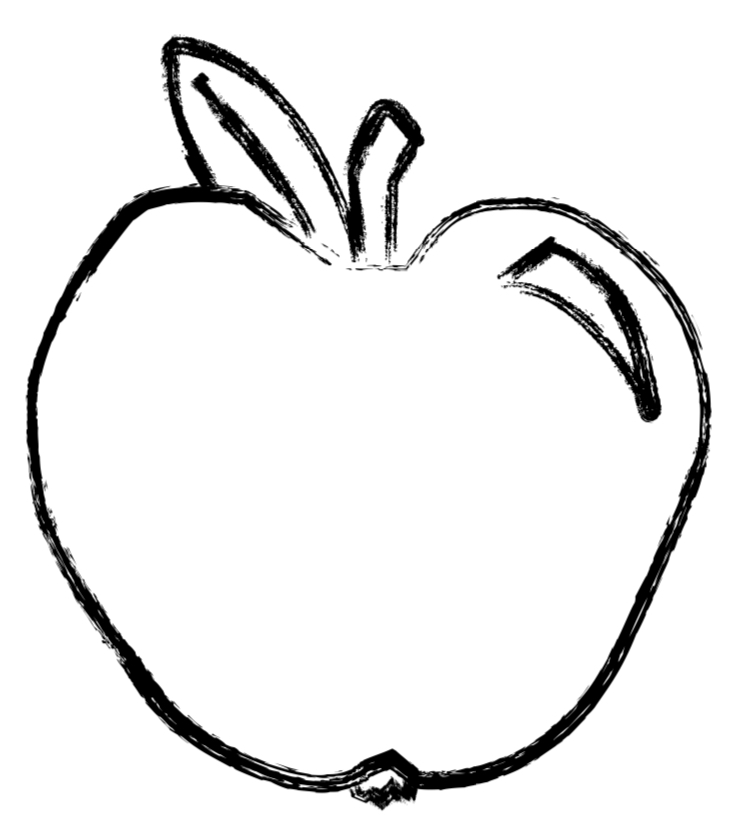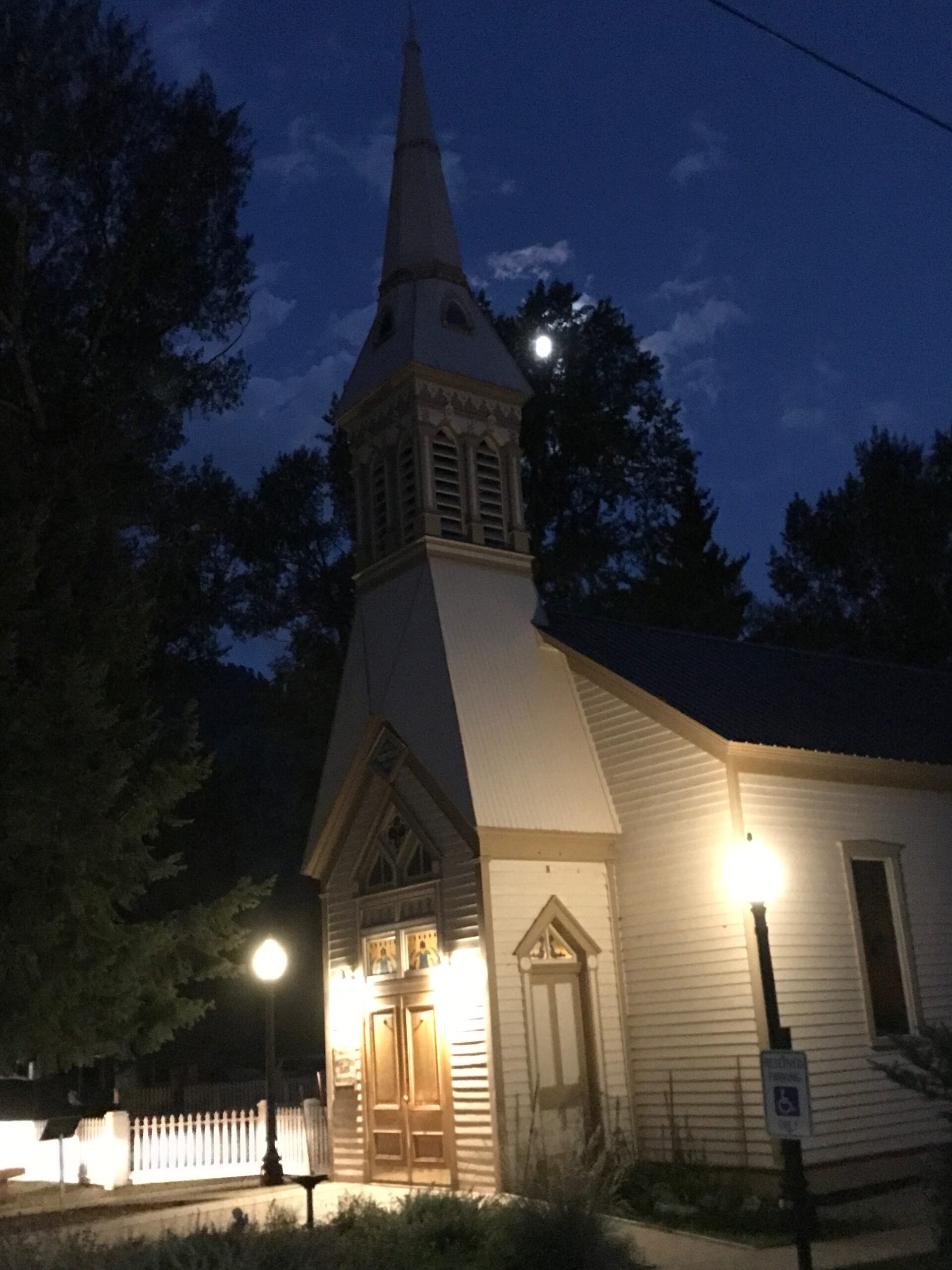
Genesis 3
Now the serpent was more crafty than any other wild animal that the Lord God had made. He said to the woman, “Did God say, ‘You shall not eat from any tree in the garden’?” The woman said to the serpent, “We may eat of the fruit of the trees in the garden, but God said, ‘You shall not eat of the fruit of the tree that is in the middle of the garden, nor shall you touch it, or you shall die.’ ” But the serpent said to the woman, “You will not die, for God knows that when you eat of it your eyes will be opened, and you will be like God, knowing good and evil.” So when the woman saw that the tree was good for food and that it was a delight to the eyes and that the tree was to be desired to make one wise, she took of its fruit and ate, and she also gave some to her husband, who was with her, and he ate. Then the eyes of both were opened, and they knew that they were naked, and they sewed fig leaves together and made loincloths for themselves.
They heard the sound of the Lord God walking in the garden at the time of the evening breeze, and the man and his wife hid themselves from the presence of the Lord God among the trees of the garden. But the Lord God called to the man and said to him, “Where are you?” He said, “I heard the sound of you in the garden, and I was afraid, because I was naked, and I hid myself.” He said, “Who told you that you were naked? Have you eaten from the tree of which I commanded you not to eat?” The man said, “The woman whom you gave to be with me, she gave me fruit from the tree, and I ate.” Then the Lord God said to the woman, “What is this that you have done?” The woman said, “The serpent tricked me, and I ate.”
The Lord God said to the serpent, “Because you have done this, cursed are you among all animals and among all wild creatures; upon your belly you shall go, and dust you shall eat all the days of your life. I will put enmity between you and the woman and between your offspring and hers; he will strike your head, and you will strike his heel.”
To the woman he said, “I will make your pangs in childbirth exceedingly great; in pain you shall bring forth children, yet your desire shall be for the man, and he shall rule over you.”
And to the man he said, “Because you have listened to the voice of your wife and have eaten of the tree about which I commanded you, ‘You shall not eat of it, cursed is the ground because of you; in toil you shall eat of it all the days of your life; thorns and thistles it shall bring forth for you; and you shall eat the plants of the field. By the sweat of your face you shall eat bread until you return to the ground, for out of it you were taken; you are dust, and to dust you shall return.”
The man named his wife Eve because she was the mother of all living. And the Lord God made garments of skins for the man and for his wife and clothed them.
Then the Lord God said, “See, the humans have become like one of us, knowing good and evil, and now they might reach out their hands and take also from the tree of life and eat and live forever”— therefore the Lord God sent them forth from the garden of Eden, to till the ground from which they were taken. He drove out the humans, and at the east of the garden of Eden he placed the cherubim and a sword flaming and turning to guard the way to the tree of life.
Reflection
Without reservation, I can say that this chapter of Genesis has been the topic of my attention for quite some time. While there is no way I can unearth all of the various points of interest in a short Advent devotional reflection, there are a few key theological insights that may be gleaned when considering the significance of this text. Although yesterday we were left basking in the beauty of God’s created order, today we’re faced with a much uglier part of the narrative.
Throughout the history of the church, this passage is known as the “Fall” chapter. In it we find the story of human disobedience and the punishments God doled out for that infraction. The challenge we have before us is understanding the larger implications of God’s curses on humanity (and the created order) in relation to the meta-narrative of God’s divine plan for the redemption and salvation of the world.
I’m willing to bet that in most Sunday school classes, when this story is shared, the focus is primarily on the serpent’s temptation and the collective act of disobedience of Adam and Eve’s choice to eat the forbidden fruit. For those raised in the Christian church, this passage stands out as the singular reason why sin exists in the world today. Just like Adam tried to blame Eve, and in turn, Eve the serpent, we too have been trained to located blame for our sinful condition on this moment in human history.
But if we take our eyes off the point of transgression for a moment, we can actually gain some real insight into why the world is the way it is today. God addresses three characters and pronounces three unfortunate results that would come about because of their disobedience.
First, the serpent’s punishment had four parts: 1) in our material world, he was the only cursed animal of all the created creatures, 2) he lost his limbs, 3) he would now eat from the material of this world (i.e., dust), and 4) he was promised enmity in his relationship with the woman and that in the end, her offspring would crush his offspring.
Second, the woman’s punishment was threefold: 1) increased pain in childbearing, 2) her desire would now be for the man, and 3) the man would rule over her. In this single verse we now have insight into the inequalities that we’ve experienced over the course of human history.
Third, the man’s punishment, interestingly enough was not only about eating of the forbidden fruit, it was also about acting on Eve’s invitation to eat the fruit as well. The result… he (and consequently the rest of us) had two curses come into being: 1) the ground was cursed and the 24/7 free fruit buffet was closed for business, and 2) individual humans would face death. From that point forward humanity, as represented in Adam, would have to labor for their food until they died. While the other curses given had profound effect, the curse God place on the creation and on humanity through Adam was profound. Life got a lot harder and death was on the agenda.
What did we get in the end? Humanity ended up with an entirely different world. But have you ever wondered about what the garden was like before God issued these punishments. Would our world have serpents with arms and legs? Would women’s desires be for something other than man and would his rule still affect human relations? What food would we eat and how would we have used all that extra time that didn’t go into laboring for our food? What if God never introduced death into our world? All questions that we can’t conclusively answer, but questions that are worth asking.
God designed a near perfect world for us to dwell in and for him to dwell with us, yet all of that changed in a single moment. Take a few minutes today and ponder how differently our world would have been had all of that not gone down in the garden. What would our relationships be like with others and with God? On this second day of our Jesse Tree devotion, let’s consider the consequences of sin’s entrance into the world and how it affected all of us.
